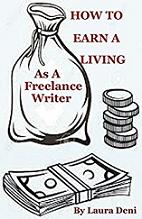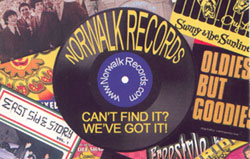 Broadway To Vegas
Broadway To Vegas

REVIEWS INTERVIEWS COMMENTARY NEWS
 |  |
PRODUCER JULIAN SCHLOSSBERG PENS A MEMOIR FOR INSIDERS ABOUT HIS ESCAPADES - - LAWSUIT ALLEDGES LAS VEGAS HOTELS PRICE FIX
- - FIGHTING WITH FAITH - -
PICTURES FROM HOME - -
CATCH UP CALIFORNIA - - JIMMY KIMMEL CELEBRATES 20 YEARS AS TALK HOST - -
MICHAEL LONGHURST TO STEP DOWN AT DONMAR
- - FAKE FOLLOWERS - - DONATE . . . Scroll Down
Copyright: January 29, 2023
By: Laura Deni
CLICK HERE FOR COMMENT SECTION
PRODUCER JULIAN SCHLOSSBERG PENS A MEMOIR FOR INSIDERS ABOUT HIS ESCAPADES.
IS IT REALLY A PROJECT PITCH?
Photo by Laura Deni
 |
The life of a producer has always seemed interesting. Seems everyone wants to be one.
In his new tomb try not to hold it against me (he has a propensity for non-capitalization) producer Julian Schlossberg offers neither a how-to nor a cautionary tale book, but rather a conversation. It's as thought he is sitting around with a group of friends, who are also in the business, reminiscing.
The book doesn't contain a glossary and this is a book full of insider terms.
He uses author directed writing, which is self indulgent, rather than reader directed writing. In the former, you know what you are saying but the reader sometimes doesn't.
What Schlossberg needed for this book was a good editor. This book, which had the potential is being a top of the charts, fascinating read for a wide audience, frequently lacks or buries details and descriptions, gearing this a book for entertainment insiders.
The common man in the street has never heard of Julian Schlossberg, and, for that matter, has no idea the job description of a producer.
It isn't until the next to the last page, of the 374 page book, in a section called what's it all about?, that he finally defines "producer." Too late, way too late.
Schlossberg's accomplishments are major and shouldn't be hidden in four lines on the back cover. If nothing else, his Wikipedia bio should have been listed. Then readers would have been better able to appreciate what he has written in this book.
Plays produced by Schlossberg have won six Tony Awards, two Obie Awards, seven Drama Desk Awards and five Outer Critics Circle Awards. He began his career in television at ABC as an assistant account representative in station clearance. After 10 months, he was promoted to head the department. In 1966 Schlossberg left ABC to become an account executive at Walter Reade Organization in the Television Division, moving to the Theater division, advancing to vice president and head film buyer.
From 1976 to 1977 Schlossberg served as the vice president of World Wide Acquisition at Paramount Pictures. In 1978, Schlossberg established Castle Hill Productions, a film production and distribution company. They distributed over 500 first run and classic movies to theaters, pay TV, basic cable, home video, TV syndication and other motion picture outlets worldwide. It became one of the largest independent film distribution companies in the world. Schlossberg established himself as a producer's representative for prominent figures such as Elia Kazan, Dustin Hoffman, John Cassavetes, and George C. Scott, Elaine May and Robert Duvall. Those are just the highlights.
In the March 24, 2002 column of Broadway To Vegas I wrote about Schlossberg, and two-time Tony award winner James Naughton, being honored by CAP 21 (Collaborative Arts Project 21). "CAP21 honors producer Schlossberg for his outstanding contribution to theatre on and off-Broadway, for restoring and re-releasing classic films and for producing film and TV honoring America's entertainment giants."
See Broadway To Vegas column of March 24, 2002.
There are an astonishing 85 chapters. The most interesting chapters are the ones where he provides specific details.
Chapter 13, the joy of sex, pages 36-39, makes some powerful statements which warrant serious discussion. Schlossberg, a heterosexual who has been married four times, talks about his relationships with women. Then he discloses that he was a same sex, sexual assault victim - multiple times.
The first time was when he was 13 and at sleep away camp. The perpetrator was the dramatics counselor.
Julian Schlossberg was sexually assaulted three times. Photo: Schlolssberg.com
 |
When he was 16 Schlossberg was working as a Broadway theatre usher and the predator was the head usher.
The third time mentioned in the book was when he was a student at NYU, where he graduated with honors, and the predator was a professor.
"I didn't find it funny when men tried to take liberties with me over the years," he writes.
Schlossberg is now 80 and these incidents took place decades before the MeToo Movement. At that time homosexuality was a crime, punishable by imprisonment, and even forced chemical castration or electro-shock therapy.
At that time, women were constantly victims of inappropriate comments, which were considered part of the daily routine. There was no place to complain. However, the assumption then was that it only happened to women. Schlossberg's disclosure that he had been sexually groped is powerful. The incidents he describes range from offensive contact battery to sexual assault. Today, what Schlossberg experienced would have resulted in the termination of the camp counselor, the usher and the professor, with criminal charges filed against the counselor and the professor.
This section should have been used as publicity bait to attract readers. Not everybody reads an entire book. Many skip around. His disclosure is important. Schlossberg writes: "I was devastated . . . . each time I was surprised and hurt. I never felt I had done anything to incite that kind of behavior."
It is also important for readers to understand that sexual assault stays with you. You can't put it behind you or forget it. What happened to Schlossberg more than 60 years ago is still part of what frames him.
The book begins with Schlossberg providing a minute detailed account of his childhood; specific names of streets he walked, games he played at school, teacher's names, the description of his house. It's the only time in the book he gets pin point specific. A shame he didn't continue with that approach throughout the rest of the book. Although, only his closest friends will care about his perfectly ordinary childhood; general public readers would have been captivated by more specifics in the chapters which follow.
The book uses the publicity approach of baiting with big names.
When you use that approach you have to deliver. Catch 'em with a hook, you gotta feed 'em the meat.
One of those Big Name Baits is Testifying in a Beatles lawsuit. Yes he did, as an expert witness. That is covered in the less than a-page-and-half long, chapter 42 titled consulting for abkco.
What is left out was detailed information about Allen Klein (December 18, 1931 – July 4, 2009) a major player. He was an American businessman whose aggressive negotiation tactics affected industry standards for compensating recording artists. He founded ABKCO Music & Records Incorporated. Klein increased profits for his musician clients by negotiating new record company contracts. Eventually he managed the Beatles and the Rolling Stones simultaneously, along with many other artists, becoming one of the most powerful individuals in the music industry during his era.
Rather than offering financial advice and maximizing his clients' income, as a business manager normally would, Klein set up what he called "buy/sell agreements" where a company that Klein owned became an intermediary between his client and the record label, owning the rights to the music, manufacturing the records, selling them to the record label, and paying royalties and cash advances to the client. Although Klein greatly increased his clients' incomes, he also enriched himself, sometimes without his clients' knowledge.
After years of pursuit by the IRS, Klein was convicted of the misdemeanor charge of making a false statement on his 1972 tax return, for which he spent two months of 1980 in jail.
According to numerous printed reports: On January 26, 1969, Klein met with Lennon, who retained Klein as his financial representative, and the next day met with the other Beatles. Paul McCartney preferred to be represented by Lee and John Eastman, the father and brother respectively of McCartney's girlfriend Linda, whom he married on March 12. Given a choice between Klein and the Eastmans, George Harrison and Ringo Starr preferred Klein. Following rancorous London meetings with both Eastmans, in April, Klein was appointed as the Beatles' manager on an interim basis, with the Eastmans being appointed as their attorneys. Continued conflict between Klein and the Eastmans made this arrangement unworkable. The Eastmans were dismissed as the Beatles' attorneys, and on May 8 Klein was given a three-year contract as business manager of the Beatles. McCartney refused to sign the contract but was outvoted by the other Beatles.
In Schlossberg's short missive it is stated that the Beatles didn't want the documentary Let It Be released because of the quirky film process and Schlossberg, as an expert witness for the opposing side, was to testify that the documentary had financial value in being released.
Schlossberg writes that he was told to sit on a bench outside the courtroom and wait to be called. He writes: "I don't know if that was Allen's (Klein) idea, his lawyers', The Beatles' lawyer's or the judge's idea. I sat alone, calmly reading a newspaper, for over an hour."
Keeping witness isolated is the basic courtroom procedure in any and all jurisdictions. You don't want a witness hearing previous testimony, because that might influence. Upcoming witnesses are never allowed inside the courtroom.
Also, be grateful that it wasn't a five hour wait.
Never-the-less Allen Klein raced out of the courtroom to tell Schlossberg what the testifying witness had just said. Had the judge known that, there would have been serious consequences.
Schlossberg is vague about one of the most highly publicized Beatles' fights. Nowhere does Schlossberg mention the date, docket number, the judge, whether this was a jury trial, names of the lawyers (especially the Beatles) whether any of the Beatles were present or whether the decision was appealed. Also, because of the acrimonious relationship between McCartney and Klein, was Klein out to get McCartney? Did Klein testify? Schlossberg does mention this took place at "the courthouse at Foley Square." Nothing more. That would be the Thurgood Marshall United States Courthouse at 40 Foley Square, New York City. If you're reading this book in Iowa, you wouldn't be expected to know that. Because of the Beatles, readers might even think London.
What is totally ignored - why the Beatles were upset, which is fascinating.
According to an article published by Colgate University: In 1970, Michael Lindsay-Hogg released Let It Be a documentary of a recording session. The movie depicted George Harrison arguing with McCartney - and it was in theaters shortly after the band's breakup. The rehearsal footage also got mistaken for a completely different time frame and spawned confusion as to how and why the group broke up. Let It Be was shot in January, 1969, weeks after White Album (also known as The Beatles) arrived in stores. In September 1969 Lennon told the group he wanted a divorce from them. In March 1970 McCarthy proclaimed he was leaving the Beatles. Lawsuits abounded. Harrison even wrote a song Sue Me Sue You Blues. In May 1970 the documentary Let It Be came out. However, after the initial run the only access to the documentary was through the black market. Viewers were turned off by the documentary, confused by the quirky photography.
Partying with Barbra Streisand and Liza Minnelli is recalled in copy covering the two page chapter #61, name-dropping. That does have specifics and is a lovely, sweet chapter.
Negotiating with Al Pacino takes up 4 lines of page 176 and 3 paragraphs on page 177. In this re-telling Schlossberg is both concise and informative, but early on in the book Schlossberg should have explained the definitions of "option" and "workshop". People in South Dakota think workshop is where you literally hammer, saw and nail things. Workshop isn't explained until page 309 in the chapter bullets over broadway.
The most interesting chapters are the ones where he provides detail and actually says something.
Chapter 43 "nurse anna" - pages 144-146 - is interesting and is the chapter where he explains what "buying outright" means.
Chapter 69 dinner parties - pages 241-244 - is concise, interesting and attention holding.
Chapter 76 "'sly fox'; the casting of a broadway play" - contains a pitch perfect description of the playright's control over the script. That would be on page 266. This entire chapter is one of the best in the book. So is the follow up chapter sly fox, part 2.
Chapter 70 on the beauty queen of leenane which starts off strong then leaves the reader hanging. The Irish play was mounted in London and Schlossberg wanted it. London slammed the door in his face. He got nowhere. Later American producers who had Leenane invited Schlossberg to join them. He was elated. Instead of explaining his role in the production of the show, the copy skips to Tony Awards night where the drama had been nominated for five awards and had already won four. Expected to receive the Best Play award Schlossberg straightened his tie and got into a jump start position to bound up to the stage. Instead, presenter Alec Baldwin announced that the winner was Art by Yasmina Reza.
Schlossberg robs the reader of fully understanding his role in Leenane. What was his responsibility as one of the producers? Is it like the famed Mel Brooks' musical The Producers where you are scamming little old ladies?
And, regarding that loss to Art when the announcement was made the cameras caught the cast of Art standing up and happened to be on Alan Alda's face which showed a surprised reaction. Alda, along with Victor Garber and Alfred Molina starred in Art. Did the Leenane producers congratulate the Art cast or did the Leenane producers pick up their trophies and scoot off to the party?
And, what about those London producers who had slammed the door in Schlossberg's face? Did he ever hear from them? What was their opinion on the enormous America success? Again, not enough detail. Especially about what do theatrical producers do and why?
flirting with the paranormal, chapter 35, takes up almost six wasted pages - 114-119 - because so much of it isn't relatable to the reader and contains little name value. However, it does begin with Shirley MacLaine. On page 166 Shirley tells Schlossberg that she has just finished making a movie Steel Magnolias with a newcomer she feels will become a major star, Julia Roberts. MacLaine asked if he had ever put a person under contract. Schlossberg indicates no, but never says he wouldn't and doesn't indicate if he signed Roberts and, if not, why?
Then he goes on and on about the paranormal and a woman named Betty Hill without explaining to the readership - 99 percent of whom wouldn't be born until decades after the Hill incident - just who Betty Hill was, besides some lady who thought she had been abducted by aliens. He mentions that a TV film starring James Earl Jones and Estelle Parsons as Barney and Betty Hill had been made, but still doesn't expand on the details or why a TV movie was warranted.
Betty and Barney Hill lived in Portsmouth, New Hampshire. Betty (1919-2004) was a social worker, with a degree from the University of New Hampshire. On September 19, 1961, the couple claimed to have been abducted by aliens. It was the first widely publicized
report of an alien abduction in the United States.
The incident came to be called the "Hill Abduction" and the "Zeta Reticuli Incident" because the star map shown to Betty Hill could possibly be the Zeta Reticuli system according to some researchers. Their story was adapted into the best-selling 1966 book The Interrupted Journey and the 1975 television film The UFO Incident. Most of Betty Hill's notes, tapes, and other items have been placed in the permanent collection at the University of New Hampshire, her alma mater. In July 2011, the New Hampshire Division of Historical Resources marked the site of the alleged craft's first approach with a historical marker.
Authorities rebuked the Hill claim saying she was distraught over the stress of being in an inter-racial marriage.
The cute book title relates little to the contents. The title implies that the person is apologizing- generally for firing someone. The producer announces that the show isn't making enough money and will close. Then says, 'it's just business, nothing personal, don't hold it against me.' The book doesn't indicate that Schlossberg ever threw hundreds of people out of work. So, why is he asking for understanding?
He attempts to answer that on page 286 when he is making a phone call to Burt Reynolds and leaves the message:
"I'm a New York producer. Try not to hold that against me. I have a script by - etc."
It all comes down to not enough detail and information. Too many assumptions that the reader knows what you are talking about. It's an insider writing for other insiders.
There are acknowledgments and an index. There should have been - right up front - a bio about Schlossberg and that all important glossary. If nothing more than that had been added it would have transformed this effort into - not just a manuscript for entertainment insiders - but one for the masses.
It's emphasized that Marlo Thomas and Elaine May are two of his long terms friends. Both were witnesses at his fourth and last marriage. May even penned the book's forward. Prominent, important testimonial comes from: Susan Stroman, Tony Roberts, F. Murray Abraham, Steve Guttenberg, Twiggy, Walter Andersron, Renee Taylor, Danny Goldberg and Marlo Thomas.
And then there is Chapter 24 about Las Vegas, pages 76 to the top of 79, which contains misrepresentations and fails to mention the importance Las Vegas was to Broadway during that 1960s-1970s time period. Very few shows on Broadway ever recoup their investment. The money is made on the road. Vegas venues would mount Broadway productions for months at a time resulting in money for investors.
Jack Soo and Juanita Hall starred in Flower Drum Song which opened in December 1961 at the Thunderbird. The success of that show resulted in a 5-year exclusive contract with Richard Rodgers to bring Broadway stage plays and musicals to Las Vegas.
In the summer of 1962 Bye Bye Birdie was the attraction at the Riviera.
In 1963 the Thunderbird hotel presented two Broadway shows on the same bill: Anything Goes for the dinner show and High-Button Shoes for the midnight second show. Both shows starred Dick Shawn with Eileen Rogers in Anything Goes and Patricia Marand in High Button Shoes. Other than that, the cast was the same for both shows.
In August 1967 Caesars Palace jumped on the Broadway bandwagon and staged a long running The Odd Couple starring Mickey Rooney as sloppy Oscar Madison, Arnold Stang, Buddy Lester, Gary Crosby, Sugar Ray Robinson, and Tony Randall as neat Felix Unger. In 1970 Randal would take that role to ABC-TV. In December 1968, before she became Hot Lips Houlihan on M*A*S*H, Loretta Swit performed at Caesars Palace in Mame as Agnes Gouch (Mame's Maid) who becomes pregnant and has the stop the show song What Do I Do Now?
Schlossberg has a lot to say, I'm just not too sure to whom. The book is a pleasant, quick read - perfect for Spring Break or to toss into a beach bag for a summer of relaxing.
All along I've wondered the purpose of this book. Insiders have their own stories. Regular folk won't understand a book that is choppy and, for the most part, shallow. Then my impossible dream chapter comes along and suddenly everything makes sense. Mr. Schlossberg, who is obsessed with a pet project, Witnesses to the 20th Century, needs money and airtime. Is this book really a set up to perhaps attract new investors and/or broadcast time? The book amounts to a pitch letter.
If the book is an investment ploy then it is the most inventive one I've ever encountered.
Schlossberg is fixated on Witnesses to the 20th Century in which he has spent perhaps 30 years or more filming 140 individuals who talk about their experiences in America. Many of the "witnesses" have been dead for 20 years and others for ten.
I don't know what type of a performance agreement he had his interviewees sign, but many of the broadcast outlets today weren't invented 30 years ago. Estates will control image and voice of their dearly departed. He'll need license agreements. Dealing with an estate can be more tenacious that bargaining with a live human.
So, this isn't a new endeavor. He explains it all in the my impossible dream chapter which is a desperate cry for help. While other chapters in the book generally run 2 to 3 pages, tops, this one drags on for 13 pages. He comes across as pleading, explaining, and whining.
Business 101 in teaching how to obtain money advises:
Get friendly with your potential investor, which Schlossberg has done through the book.
Act passionate about your project - that's page 319: "And I want to leave something behind to show that I was here. Having no children, these 140 interviews are my legacy - along with, I hope, fourteen meaningful hours entitled Witnesses to the 20th Century."
Then ask for what you want. (pages 324-325) "I raised the money." Six shows were filmed . . . "staring at the beginning of the century, 1900, and went up to 1953. We needed more funds to finish . . . . We hoped for a cable system, the PBS network, or a streaming service would come on board. My two partners, while still supportive, had decided they had given enough . . . I raised some more money, filmed seven more witnesses." Now the project is stalled. Schlossberg writes "Ultimately, we will find a suitable partner to broadcast Witnesses."
There are 140 names. which take up four pages. From a guy who utilized no capitals in titles and headlines, he prints the names of all 140 in large font, all capitals, italicized and double spaced.
All of the individuals are famous and their views on America aren't new to the Schlossberg tapings. Their opinions on America and other subjects are well documented.
For a project about witnesses to America - surmised from the names alone of the chosen 140 - there are no Mexicans, one Oriental and the Blacks can be counted on the fingers of both hands. America hasn't been that white since the pilgrims landed. And, one of the names, Desmond Tutu, wasn't an American and wasn't born until 1931.
In a nutshell Schlossberg has fourteen hours of documentary - taping people talking about what they experienced in America. He had investor money which he used up and the investors didn't want to pony up any more. He needs an outlet and thus far hasn't been successful.
Fourteen hours. That's a lot of expensive air time.
What he apparently failed to do was follow basic business rules:
Don't Operate On Spec: check out to see if there is interest, not from family or friends, but from the marketplace. Why didn't he have aired the first hour and then check out the ratings and feedback before soldiering on?
Check Out The Competition: In this case American history has already been done, and done quite well. PBS has cornered the market with viewing that is free to the public. American Experience, is TV's most-watched history series. Ken Burns has ably chronicled America. TJ Lubinsky does music. American Historia with John Leguizamo, is the Broadway star's continued quest to uncover the history and often overlooked contributions of Latino people. This series will begin airing in fall 2023 and Dr. Henry Louis Gates, Jr. does black history.
Remember To Be Passionate About Your Project: but keep yourself well grounded. Don't listen to family or friends. Entertainment is a business. If you can't keep one foot in reality, have an associate you listen to, who can.
my impossible dream may be just that. After reading the entire book I'm guessing that he hopes the last chapter will make his "impossible dream" a reality.
E-Book
 |
Soft back Book
 |
Broadway To Vegas is supported through advertising and donations. Priority consideration is given to interview suggestions, news,
press releases, etc from paid supporters. However, no paid supporters control, alter,
edit, or in any way manipulate
the content of this site. Your donation is appreciated.
We accept PAYPAL.
Thank you for your interest.
E-Book
 |
Soft back Book
 |
This is not your typical, totally boring textbook.
In the pages of How To Earn A Living As A Freelance Writer (the first to be lied to and the last to be paid)
you'll find sex, celebrities, violence, threats, unethical editors, scummy managers and lawyers,
treacherous press agents, sex discrimination; as well as a how-to for earning money by writing down words.
ART AND ABOUT
FIGHTING WITH FAITH Mosque in Germany. Photo WWI Museum
 |
In 1915, Germany built a mosque in a prisoner-of-war camp – the first functioning mosque ever built on German soil. Along with propaganda-like visits from foreign dignitaries and extra leisure activities directed by the German Intelligence Office for the East, the mosque was part of a German campaign to convince Muslim POWs to change sides and join the Ottoman-German Alliance against the British and French. The camp population was made up of soldiers of diverse militaries, nationalities, ethnicities, and languages who all had one thing in common: their religion.
Fighting with Faith: a WWI POW Camp of Propaganda investigates the Halbmondlager, or "Half Moon Camp," with a close look at the ways in which Germany and the Ottoman Empire fought for the hearts and minds of prisoners. Fighting with Faith complements the onsite exhibition Captured, which is open through April 30, 2023 in the Museum and Memorial’s Wylie Gallery.
"One of the most important things that we do as a Museum is to share the rarely-told stories of those in the margins during WWI,” National WWI Museum and Memorial President and CEO Dr. Matthew Naylor said. “Fighting with Faith is a story that will likely surprise people who didn’t know of its existence. This digital exhibition not only helps us shed light on the stories of those who history may have left in the dark, it is a unique opportunity to explore the effects of misinformation campaigns from the lens of a hundred years in the future. We’re thrilled to continue to expand the meaningful work of the National WWI Museum and Memorial to a global audience of online visitors."
Online visitors will have the opportunity to see pictures from the camp, listen to authentic audio of instruments being played there and explore the architecture of the space with interactive photos. The exhibition also shows the propaganda used by The German Intelligence Office of the East, including newspapers, educational lectures and visits from Turkish, Tartar and Arab officials to boost morale.
Following the end of World War I, the German government closed the camp and returned most remaining prisoners to their home countries. A decade later the building fell into disrepair and German the military built barracks and garages for tanks around the former camp. More recently, in the late 2010s, Germany housed refugees from Syria, Iraq and Iran in the same place where the POW camp stood one hundred years prior. Many of the refugees were fleeing from ISIL-controlled areas in their home countries.
Each year, more than 2.6 million learners from around the world visit the Museum and Memorial’s website from over 200 countries. Online exhibitions like Fighting with Faith, as well as the Museum and Memorial’s robust Online Collections Database, enable a global audience to interact with the Museum and Memorial from anywhere in the world.
Three items in the exhibition were provided by partner institutions: the State Museum of Berlin, Humbolt University, Berlin and the Leo Baeck Institute – New York.
AMERICAN PERSPECTIVES: STORIES FROM THE AMERICAN FOLK ART MUSEUM COLLECTION to open at the Portland Museum of Art in Portland, Maine on February 3, 2023 on exhibit through May 7, 2023.
Featuring over seventy significant works from the American Folk Art Museum’s collection, this exhibition offers insight into the diverse landscape of folk and self-taught art in the United States from the eighteenth century to the present day. Capturing thoughts and experiences, the dynamic artistic production on view functions as a witness to history, a carrier of cultural heritage, and a reflection of the world at large. The idea of art’s entanglement with our shared and complex past—and the ability of artists to speak to, counter, and nuance those histories—animates this vibrant installation.
Four primary sections, organized under the titles "Founders, Travelers, Philosophers, and Seekers," explore the roles, ideas, and firsthand testimonies of artists of various backgrounds and perspectives. A wide range of forms—from quilts, embroidery, and assemblages to pottery, paintings, and sculpture—reveals aspects of American identity, nationhood, and histories, and celebrates the multiplicity of insights art can offer on these questions. Through the interweaving of historical and contemporary works that speak to the beauty, complexity, and contradiction of this country, American Perspectives affirms that everyone has a story to tell.
Each piece in the exhibition holds a unique and intimate viewpoint from a broad collection of artists. "The individual stories and ways that these works of art carry these stories forward is reflected beautifully in this show. Visitors have the opportunity to delve deeply—to go down a rabbit hole, so to speak—with each piece, and you can really fall in love with these objects and their makers," says Ramey Mize, PMA’s Assistant Curator of American Art. "It’s an invitation to look closer and to look at things differently, to adopt a new perspective." American Perspectives stages questions regarding U.S. identity, nationhood, and histories, creating space for a multiplicity of viewpoints on these issues and embracing the dynamism and diversity of American life.
This Exhibition has been organized by the American Folk Art Museum, New York, with support provided by Art Bridges. Originally curated for installation at the American Folk Art Museum, February 11, 2020 – January 3, 2021, by Stacy C. Hollander, Independent Curator. Tour coordinated by Emelie Gevalt, Curator of Folk Art, the American Folk Art Museum.
E-Book
 |
Soft back Book
 |
SWEET CHARITY
GIBSON GIVES the charitable arm of the iconic, American instrument brand Gibson - has announced its TEMPO program will offer ONEbox opioid emergency response kits--which contain two doses of the opioid reversal medication Naloxone (Kloxxado)--to 72+ live music venues in the Nashville, TN metro area. The new life-saving TEMPO Nashville Live Music Venue Program was announced on Thursday, January 26 ,in alliance with the Metro Nashville Police Department, at the Gibson Garage in downtown Nashville.
Gibson Gives’ TEMPO program (Training and Empowering Musicians to Prevent Overdose) is a partnership of 12 music-industry related non-profits across the U.S. including MusiCares, The Scars Foundation, The Roadie Clinic, Sandgaard Foundation, Sims Foundation, Harbor Path, Musicians For Overdose Prevention, Life By Music, Passenger Recovery, National Harm Reduction, and Solace For Hope which provide life-saving training for using Naloxone (Kloxxado)--to prevent/reverse opioid overdoses--and offer a network for recovery from opioid addiction.
SPREADING THE WORD
A CELEBRATION OF JOHN GUARE takes place Monday, February 6, 2023 at 92Y in New York City.
An evening of words and music in celebration of playwright John Guare, whose theatrical works include Two Gentlemen of Verona, Lydie Breeze, Six Degrees of Separation, The House of Blue Leaves and Landscape of the Body.
Tony Kushner cobbled together the lineup for this event, and he will produce it. Kushner wrote: "So enormous is the esteem in which I hold the Great Guare and his monumentally important body of work. Like Williams, he figured out a way for Americans to do a kind of stage poetry. There are astonishingly beautiful things in his plays."
In addition to Kushner other participants include: Meryl Streep, Ben Stiller, Ariana DeBose, Paul Dano, Suzan-Lori Parks, Linda Lavin, Dylan Baker, Kenneth Lonergan, Edie Falco, Zoe Kazan, Elizabeth Marvel, Stephen Adly Giurgis, Bill Camp, Camryn Manheim, Becky Ann Baker, Corey Hawkins, Linda Emond and Ato Blankson-Wood.
CONOR McPHERSON directs Damien Dempsey through the story of his life in Tales from the Holywell. Using words, music, and song, this theatrical experience is about a young boy from Dublin’s northside finding his voice, his music, and his tribe. Running from January 30 - February 18, at the Abbey Theatre in Dublin, Ireland, Tales from the Holywell is a world premiere production, written by Damo himself.
TOWN HALL'S CROSSING THE POND COMEDY FESTIVAL presents comedian Joanne McNally in The Prosecco Express on February 3 and 4 The Town Hall in New York City.
Due to a relentless aging process, Joanne is suddenly in her late thirties with no husband, no kids, no pension and no plan. She is full of questions: if she doesn’t birth anything, who will be obligated to watch her die so she doesn’t have to do it alone? Can she start a GoFundMe page to get a golden tomb built for single people to get buried in together, or do we all just get thrown into a mass grave and covered in cat hair? When a man on a dating app identifies as 'spiritual', is it safe to assume he has the personality of a spoon? If you do all your drinking in the bath, can you write it off as self-care? Joanne is on a mission to solve absolutely nothing.
MICHAEL LONGHURST has announced that after five years in the role he will step down as Artistic Director of the Donmar Warehouse in London when his contract ends in February 2024.
“I could not be prouder of the Donmar team and all that we’ve achieved across my tenure – the impact of the pandemic on our industry was devastating, but in the face of this, I am so grateful that the team rose to the challenge, not only to fundraise for and deliver an essential capital project, but to simultaneously help reopen theatres with our globally-transferring sound installation Blindness and our multi-cast Olivier Award-winning revival of Constellations in the West End. Thank you to all the artists and theatre makers who have been part of the journey so far. I am proud that in a time so challenging for freelancers to have enabled so many Donmar debuts, and to have continued to improve the diversity of those making work here. I am enormously grateful to my Co-Chief Executive Henny Finch for her unwavering support and great skill throughout my tenure."
FAKE FOLLOWERS Casino Guardian used the free Instagram fake follower auditing tool by Modash which automatically analyses accounts using a variety of metrics, and provides stats such as follower count, engagement rate, fake followers and popular content.
According to Casino Guardian, Bots, fake or spam accounts are inauthentic accounts that imitate real persons on social media websites. They are created by hackers and agencies for various purposes – some are designed to post malicious links, some share fake news and are designed to influence social opinions, mainly on political issues. Other bots simply subscribe to or follow different users in order to artificially boost their following.
Fashion icons, makeup gurus or pop stars – influencers have become some of the biggest names on social media over the past few years. Many envy their fame, their seemingly glamorous lifestyle, and their association with popular brands that bring them thousands of dollars for a single post.
The company pouinted out that "it has become clear how easy it is to buy fake likes, comments, or even fake followers on platforms such as Facebook, Instagram, Twitter, and TikTok. It turns out that anyone can fake being popular by simply purchasing thousands of subscribers from dedicated online agencies – a tendency that is difficult to overcome by platforms. Along with the many social influencers that sometimes buy these bots, many celebrity influencers have also been found guilty of having a massive fake following. The team at CasinoGuardian decided to look at the accounts – whether owned by celebrities or not – that have amassed the highest percentage of fake followers on Instagram."
Roughly 29% of the 187 million Katy Perry followers on the platform are not real people but fake accounts
Sisters and reality TV stars Kourtney (210M followers) and Khloe Kardashian (290M followers) have the second and third-highest percentage of fake followers - 28.89% and 28.78%, respectively
Chris Brown and Miley Syrus appear in the 4th and 5th positions in the ranking with an estimated 28.73% and 28.62% fake followers
They are followed by:
Nicki Minaj 28.47% fake followers of her 208.2M
Demi Lovato 27.94% fake followers of her 147.1M
Gigi Hadid 27.87% fake followers of her 76.6M
Ariana Grande 27.75% of fake followers of her 3508M
Justin Timberlake 27.61% fake followers of his 67.9M
Gal Gadot 27.5%% fake followers of her 94.5M
Kim Kardashian 27.37% fake followers of her 341.2M
Zendaya 27.15% fake followers of her 164.6M
IN THE COURTS
Caesars, MGM, and Wynn have all been named in a class action lawsuit filed Wednesday, January 25, 2023 that charges that four of the main Las Vegas Strip resort operators colluded, via data-sharing software, to artificially inflate the prices of hotel rooms.
The lawsuit alleges that Rainmaker, a revenue management platform used by an estimated 90% of Vegas Strip hotels, collects real-time pricing and supply information from competitors and provides room rental rate recommendations designed to unlawfully maximize profits for its hotel operator users. Attorneys say this algorithmic-driven price-fixing comes at the expense of consumers and in violation of antitrust laws.
Attorneys say that in a competitive market, hotel operators would price rooms independently and would fill as many rooms as possible. The sharing of pricing and capacity information through Rainmaker has displaced normal competitive pricing and lead to increased room prices, according to the lawsuit, and antitrust academics have roundly criticized this type of price and supply exchange as anticompetitive.
If you’ve rented a hotel room on the Las Vegas Strip on or after January 25, 2019, you may have overpaid.
The named hotel operators hold a significant share of Vegas Strip hotels, collectively controlling approximately 20 of the 30 total available, including Caesars Entertainment (Flamingo, The Linq, Caesars Palace, Harrah’s, Horseshoe, The Cromwell, Paris and Planet Hollywood), MGM Resorts International (Excalibur, Luxor, MGM Grand, Park MGM, New York New York, Bellagio, Mandalay Bay, CityCenter and Cosmopolitan), Treasure Island and Wynn Resorts (Encore and Wynn). The lawsuit states that defendants’ control of the market enabled the scheme.
"Hagens Berman is investigating the rights of Las Vegas consumers harmed by a scheme perpetrated by some of the largest gaming and hospitality companies, including Wynn and MGM Hotels," is their official statement. "We believe these casinos colluded to artificially increase the price of Las Vegas hotel rooms, putting rates above competitive levels. In this scheme, consumers lose, and rates are adjusted beyond what a free market would bear. We believe in upholding consumers’ rights."
“Our antitrust attorneys have uncovered what appears to be an unlawful agreement in which Rainmaker collects and shares data between Vegas hotel competitors to unlawfully raise prices of hotel rooms,” said Steve Berman, managing partner of Hagens Berman and attorney seeking to represent consumers in the case. In a release hs states: "What happens in Vegas will no longer stay in Vegas. We intend to expose the under-the-table deals perpetrated by these Vegas hotels, and we intend to hold them accountable."
Hagens Berman "is a global plaintiffs’ rights complex litigation law firm with a tenacious drive for achieving actual results for those harmed by corporate negligence and fraud," according to their website.
According to the lawsuit, Las Vegas hotel room prices are currently at record highs.
Rainmaker advertises 15% revenue growth for its hotel operator users, and testimonials on the website for its parent company, Cendyn, describe implausible performance during market downturns and even the COVID-19 pandemic. The lawsuit quotes a Cendyn hotel customer claiming to have produced 70% of the prior year’s revenue with 50% of the volume despite closures and restrictions throughout the pandemic.
Each of the defendant operators relied on Rainmaker’s algorithms to provide pricing recommendations. Rainmaker’s algorithms focused on maximizing Defendants’ profitability, at the expense of competition. The lawsuit quotes a Rainmaker VP of revenue analytics stating, “the ultimate goal is not chasing after occupancy growth, but instead maximizing profits across all revenue streams.” This is contrary to a free and fair market, the complaint states, where producers increase their revenue by growing their supply, not restricting it.
“By incentivizing its users to suppress the supply of hotel rooms, Rainmaker artificially drove up prices and directly harmed consumers,” said Berman. “These corporations created a scenario in which the house will always win, and they’ve broken the law to do so.”
The lawsuit states that Rainmaker’s proprietary software, Guestrev, analyzes hotel clientele and makes dynamic pricing recommendations based on this data, “to help ensure the properties reward the right customers with the right rates at the right time.” The complaint goes on to say that Cendyn has specifically contrasted this pricing strategy to hotel operators’ prior approach, wherein all guests were charged either a standard rate or a frequent gambler rate. Rainmaker also offers a program called RevCaster, which it explicitly advertises as a method for users to monitor competitor pricing and occupancy rates.
The lawsuit brings claims for violation of the Sherman Antitrust Act against hotel operators for their use of Rainmaker software. Hagens Berman seeks to hold the defendants liable for repayment to those who have overpaid as a result of the scheme.
Hagens Berman states: "Through a class-action lawsuit, individual consumers can collectively bring claims against large corporations who would otherwise have the upper hand. A class-action lawsuit seeks to level the playing field, bringing strength to collective action to change corrupt practices. Though these measures do not bring immediate relief, they are a time-tested method of holding companies accountable for wrongdoing.
"There is no cost or fee whatsoever involved in joining this case. In the event Hagens Berman or any other firm obtains a settlement that provides benefits to class members, the court will decide a reasonable fee to be awarded to the legal team. In no case will any class member ever be asked to pay any out-of-pocket sum."
Attorneys are: Steve W. Berman, Rio S. Pierce, Hannah Song, and Stephanie A. Verdoia.
U.S. District Court District of Nevada, case number 2:23-cv-00140.
OTHER PEOPLE'S
MONEY
CATCH UP CALIFORNIA rally to fund CA Senate Bill 1116, known as the Equitable Payroll Fund — Intended to preserve small, nonprofit performing arts organizations throughout the state and the communities they serve, SB1116 was signed into law in 2022, but remains unfunded in the most recent budget. California notoriously underfunds the arts, investing less than 1/3 of what New York does, and 1/6 of Minnesota. Yet nonprofit arts in San Francisco alone generate $1.4 billion of economic activity. It’s time to catch up, California! Funding SB1116 will create jobs and build inclusive local economies in every district of California. A call to action to urge Governor Newsom and lawmakers in the state legislature to follow through on the commitment they made when they passed SB1116 into law.
Confirmed Speakers:
• SB1116 author California State Senator Anthony Portantino
• Actors’ Equity Association President Kate Shindle
• Actor/Antaeus Artistic Director Bill Brochtrup
• Actor Kirsten Vangsness
• Playwrights’ Arena Artistic Director Jon Lawrence Rivera
• Actor/Theatre Producers of Southern California board member Marc Antonio Pritchett
• Emcee: Ophelia’s Jump Producing Artistic Director Beatrice Casagran
Friday, January 27 at 10:30 a.m. at the
Antaeus Theatre Company Kiki & David Gindler Performing Arts Center in
Glendale, CA.
E-Book
 |
Soft back Book
 |
 |
 |
JIMMY KIMMEL Jimmy Kimmel
 |
who last Wednesday celebrated his 20th anniversary of hosting The Jimmy Kimmel Show on ABC-TV.
The former Las Vegas resident read three of the original reviews he received from the airing of his first show. They were scathing and hilariously funny.
Kimmel is still the host. I don't know if the three critics are still employed.
Here's hoping the bright and talented Kimmel will enjoy 20 more years hosting his talk show.
RICHARD E. WILEY former chairman, commissioner and general counsel of the FCC, will get the 2023 Lifetime Achievement Award from the Broadcasters Foundation of America March 6. The award honors an individual “who has made invaluable contributions to the television and radio industries,” said the Foundation.
Wiley will receive the award when the Broadcasters Foundation hosts its Golden Mike Award event at the Plaza Hotel in New York. Jack Abernethy, CEO of Fox Television Stations, will get the Golden Mike Award that night.
Other Lifetime Achievement Award winners from the Broadcasters Foundation are Lesley Visser, Charles Osgood, George Beasley, Ed McLaughlin and Dick Clark.
DADDY'S GIRL an animated music video, "featuring a poignant series of shared moments between father and daughter," has won four film festival awards for Best Animation: LA Indies and Best Music Video: London Filmmaker Awards, San Diego Art Film Festival and the International Manhattan Film Awards.
The video was produced by Jamie deRoy, legendary Broadway Producer, winner of 10 Tony Awards, and directed by Candy Kugel, award-winning filmmaker. Jamie also sings and co-wrote the music and lyrics forthe featured song, Daddy’s Girl, along with Lanny Meyers and Jane R. Snyder.
THE TEAM BEHIND AN CAILIN CLUIN/THE QUIET GIRL have expressed their pride at being the first ever Irish language film to be nominated for an Oscar.
It has been nominated for the 95th Academy Awards in the International Feature Film category.
Speaking on their Oscar nomination, Writer/Director, Colm Bairéad and Producer, Cleona Ní Chrualaoi, from Inscéal, the production company behind the film, said: "We are honoured beyond words that An Cailín Ciúin/The Quiet Girl has been nominated for the 95th Academy Awards.
"This is a truly historic and meaningful moment for Irish film, the Irish people and the Irish language.
"Never before has an Irish film been nominated in this category. Never before has Irish-language art been given such a platform. This film has been an extraordinary labour of love and it has been a joy to see audiences the world over take it into their hearts.”
They added: "Our sincere thanks to the members of the Academy for embracing An Cailín Ciúin/The Quiet Girl and giving her a voice."
Based on Claire Keegan's novella Foster, An Cailín Ciúin is an intricate, deeply felt coming-of-age drama that delves into the meaning of family through the eyes of a neglected young girl.
Set in rural Ireland in 1981, the film follows Cáit (Catherine Clinch) as she is sent from her overcrowded, dysfunctional household to live with distant relatives for the summer.
She is welcomed with open arms by Eibhlín (Carrie Crowley), but her husband (Andrew Bennett) keeps Cáit at arm’s length.
Slowly, however, a warmth grows within this makeshift family and Cáit begins to blossom in their care.
But in this house where there are meant to be no secrets, she discovers one painful truth.
The film has grossed over €1million at the box-office in Ireland and the UK, becoming the most successful Irish-language film ever.
In its Oscar category it will go up against All Quiet on The Western Front (Germany), Argentina, 1985 (Argentina), Close (Belgium) and EO (Poland).
The Oscars ceremony will take place on March 12 at Hollywood’s Dolby Theatre.
SUZANNE PEREIRA appointed Executive Director of Darlinghurst Theatre Company in Australia.
Her association with the company began in 2014 and has continued throughout a career that has capitalized on a fusion of creative and business experience.
Pereira made her mainstage directorial debut with the Company’s production of Mary Ann Butler’s The Sound of Waiting, and has served as a DTC Ambassador and Board member since 2018.
Pereira, a first-generation Sri Lankan Australian, believes her appointment will be a signal to artists and arts workers.
"The significance is not lost on me. It’s what so many of us have been calling for – diversity in arts leadership. You cannot be what you cannot see, and I hope my appointment heralds the ever-growing possibility of diverse Arts Leadership in Australia."
PICTURES FROM HOME written by Sharr White, based on the photo memoir by Larry Sultan.
Directed by Bartlett Sher.
Starring Nathan Lane, Danny Burstein, and Zo? Wanamaker.
The creative team for the production includes Michael Yeargan (Set Design), Jennifer Moeller (Costume Design), Jennifer Tipton (Lighting Design), Scott Lehrer and Peter John Still (Sound Designers), and Ben Pearcy at 59 Productions (Projection Design).
Officially opens on Thursday, February 9 at Studio 54 in NewYork City and is playing a limited engagement.
WOLF PLAY by Hansol Jung.
Directed by Dustin Wills.
When an off-the-record adoption goes awry, Jeenu's new parents learn just how far a wolf will go to defend its pack.
The cast includes Christopher Bannow as “Peter,” Esco Jouléy as “Ash,” Brian Quijada as “Ryan,” Nicole Villamil as “Robin,” and Mitchell Winter as “Wolf.”
The creatives are: scenic design by You-Shin Chen, costume design by Enver Chakartash, lighting design by Barbara Samuels, sound design by Kate Marvin, puppet design by Amanda Villalobos, and properties by Patricia Marjorie. Hannah “Rock” Roccisano is the Fight Director and Kasson Marroquin is the Production Stage Manager. Original casting by Stephanie Yankwitt, CSA & TBD Casting Co.
Soho Rep's Wolf Play is presented in collaboration with Ma-Yi Theater Company.
Wolf Play began previews on Thursday January 26 for an official opening on Tuesday February 14 and a limited run through March 5, 2023 at MCC Theater’s Susan & Ronald Frankel Theater in New York City.
TALES FROM THE HOLYWELL an intimate theatrical reflection on Damien Dempsey's life and career written and performed by Damien Dempsey.
Directed by Conor McPherson.
‘I’m searching in the murk of my own past, looking for clues as to how I can live now, today. History around me. History within me.’
One of Ireland’s great musical storytellers, Damien Dempsey takes to the Abbey stage with Tales from the Holywell, in which Damien invites everyone on a journey through his life – reflecting on his childhood, the early stages of his music-making and life as an Irish musician, with a powerful story to tell.
Tales from the Holywell is called "a revealing insight into the artist known and love as Damo."
The creatives are: Set and Lighting Designer: Paul Keogan.
Sound Designer: Sinéad Diskin.
Costume Designer: Saileóg O'Halloran.
Musician: Lucia McPartlin.
Musicians Rod Quinn and Aura Stone.
January 30 - February 18, 2023 on the Abbey stage in Dublin, Ireland.
TROUBLE IN BUTETOWN by award-winning playwright Diana Nneka Atuona.
Directed by Tinuke Craig.
Sarah Parish returns to the Donmar and is joined by BAFTA nominee and BIFA winner Samuel Adewunmi, Rita Bernard-Shaw, Ifan Huw Dafydd, Zaqi Ismail, Gareth Kennerley, Bethan Mary-James, and Zephryn Taitte.
"First thing I'm a need you to do is keep my secret. can’t let nobody know I’m here and I mean nobody"
In her illegal boarding house in Butetown, Cardiff, Gwyneth Mbanefo toils tirelessly to keep afloat.
It’s a port town during the war; home to souls from every corner of the globe. When Nate, an African American GI, escapes his barracks and discovers this new world without segregation, can he find safe harbor in Tiger Bay? And with danger on every corner, who can he trust?
Trouble In Butetownis a recipient of the Theatre Royal Haymarket Writers Award and the George Devine Award.
Previews from February 19, 2023 at the Donmar in London.
THE ACTING COMPANY'S READING OF THE MISANTHROPE translated by Neil Bartlett.
Directed by The Acting Company's Producing Director Devin Brain.
"Bartlett’s uproarious translation of Molière’s comedy of manners transports the formal court of Louis XIV into a Hollywood film studio, while retaining the rhymed couplets and verse of classical French."
The cast for The Misanthrope features: Kelley Curran as Celimene, and Elizabeth Stahlmann as Arsinoe, with Rufus Collins as Oronte, Ben Horner as Philinte, Chukwudi Iwuji as Alceste, and Nikki Massoud as Eliante.
The Misanthrope is produced as part of The Acting Company's annual Louanna O. Carlin & John MacDonald Reading Series.
The reading will take place on Monday, February 6 at the Peter Jay Sharp Theater in New York City.
E-Book
 |
Soft back Book
 |
This is not your typical, totally boring textbook.
In the pages of How To Earn A Living As A Freelance Writer (the first to be lied to and the last to be paid)
you'll find sex, celebrities, violence, threats, unethical editors, scummy managers and lawyers,
treacherous press agents, sex discrimination; as well as a how-to for earning money by writing down words.
Next Column: February 5, 2023
Copyright: January 29, 2023 All Rights Reserved. Reviews, Interviews, Commentary,
Photographs or Graphics from any Broadway To Vegas (TM) columns may not be published,
broadcast, rewritten,
utilized as leads, or used in any manner without permission,
compensation
and/or credit.
Link to Main Page
Laura Deni

For the snail mail address, please E-mail your request.




 Broadway To Vegas
Broadway To Vegas













































